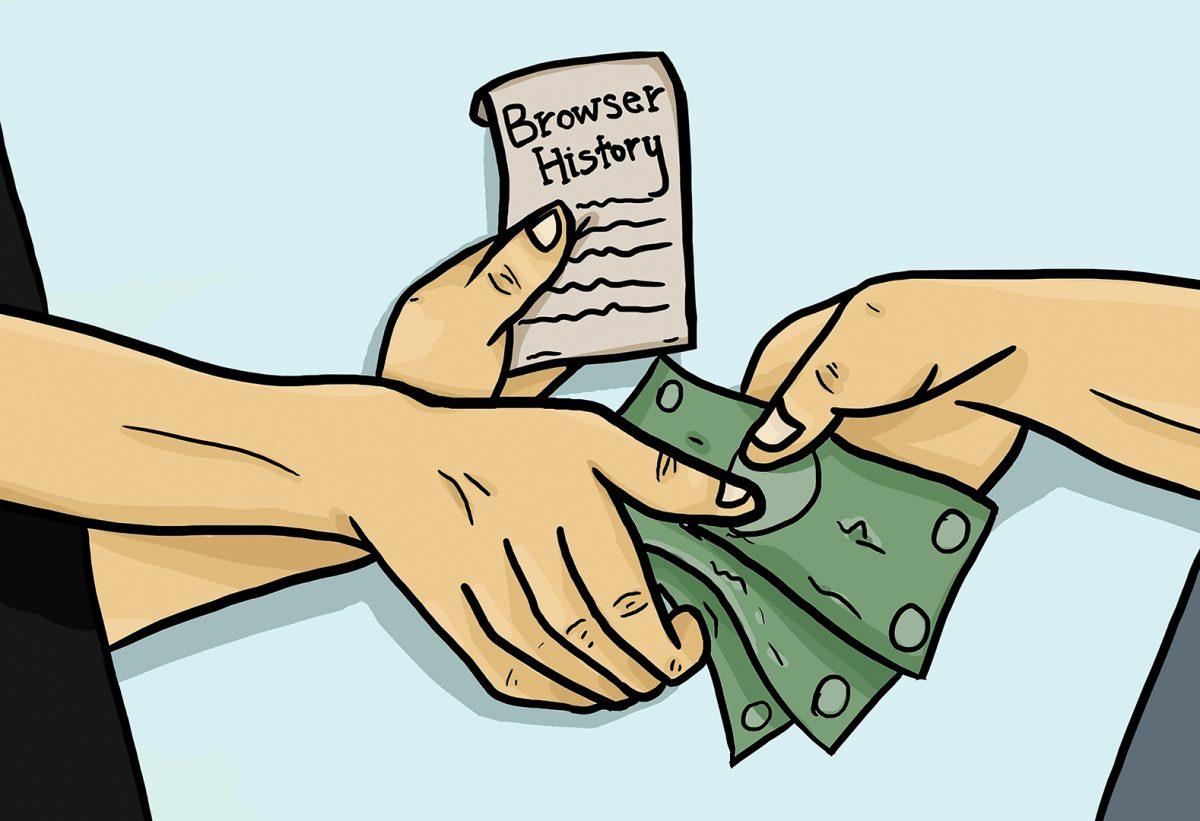Internet privacy is an ongoing issue as the world becomes more technologically intertwined. Anything and everything is done online, and steps need to be taken to protect sensitive information.
In 2016, the Federal Communications Commission passed rules and regulations to protect the privacy of Americans. Internet service providers such as Verizon, Comcast and AT&T were required to ask for user permission to collect and share consumer information. Things such as account login information, browsing history, app usage and geo-location were protected.
However, President Trump signed a resolution that repeals these protections. Personal and intimate information can now be collected by internet or broadband providers. This means everything you do online can be viewed, collected and sold for online marketing purposes and monetary profit. Through this information, companies can create directed advertisements targeted toward consumers.
According to the Pew Research Center, a non-partisan American fact tank, 86 percent of Americans have taken steps to remove their digital footprints and 68 percent believe current laws are not good enough at protecting online privacy. If Americans feel this way, why is the government taking steps backwards?
“We’re talking medical information. We’re talking passwords. We’re talking financial information. We’re talking college applications. There is nothing in today’s society that every one of us doesn’t do every day on the internet, and yet (companies are) going to get it,” said Michael Capuano, Massachusetts House Representative, during a speech on the House floor.
Companies should not be allowed to collect our data at all. There should have been a policy implemented for consumers to volunteer their information instead of the op-out policy. No one should have to ask their internet service provider to not violate their online privacy—especially if that person is paying for the service.
The American government is required to get a warrant to search your house, car and person. Why should corporate companies be allowed to know and search our personal online information without us even knowing?
The argument in favor of these rollbacks is that it creates an equal playing field in online advertising between internet companies like Google and Facebook. However, Americans may simply choose to limit their use of these companies or switch to other competitors like Bing. When considering everything broadband companies provide, it is much harder to hide personal activity from your internet provider, or go without internet at all in such a digitized world.
Online marketing is a great tool that can be used to increase sales. However, corporate companies should find more ethical ways to implement these advertisements and not use the private information of the individuals they are trying to sell items to. Americans deserve to have their privacy protected—online information included.
– John Lee is a marketing freshman
Goodbye online privacy
April 22, 2017
Illustration by: Haley Prieto | Staff Illustrator
Donate to The University Star
Your donation will support the student journalists of Texas State University. Your contribution will allow us to purchase equipment and cover our annual website hosting costs.



















